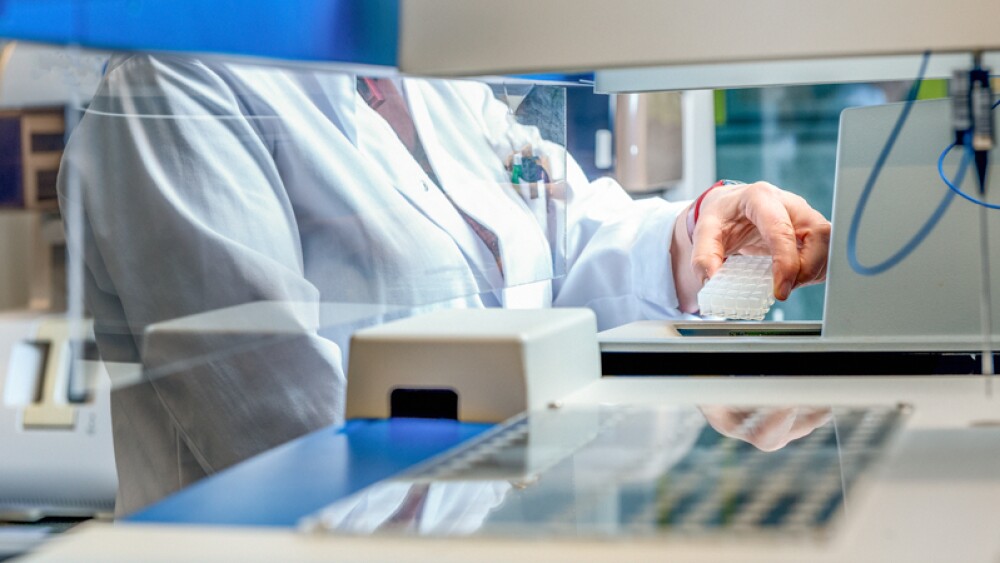April 5, 2017
By Mark Terry, BioSpace.com Breaking News Staff
Somerville, Mass.-based Finch Therapeutics announced that it had inked a global collaboration deal with Takeda Pharmaceutical Company Limited .
The agreement focuses on jointly developing FIN-524, a live biotherapeutic product made up of cultured bacterial strains that have been associated with favorable clinical outcomes in research of microbiota transplantations in inflammatory bowel disease (IBD).
Under the deal, Finch will receive an upfront payment of $10 million for exclusive worldwide rights to develop and commercialize FIN-524. It also will gain rights to follow-on products in IBD. Finch will also be eligible for various milestones and tiered royalties on worldwide net sales. If the companies want to extend the deal, they will have the option to do so.
“Takeda’s deep GI expertise and recent success in bringing therapies to IBD patients complements our own expertise in microbiome engineering,” said Mark Smith, chief executive officer of Finch, in a statement. “Our human-first discovery platform uses data from successful clinical experiences with fecal transplants to design novel microbiome therapeutics for IBD and other diseases. Working with Takeda, we’re well positioned to bring a potentially transformative and scalable new therapy to patients.”
Finch was founded by data scientists, clinicians and microbiologists from MIT and OpenBiome. The company utilizes machine learning algorithms and high-throughput molecular data to reverse engineer fecal transplantation. They identify strains of bacteria that drive clinical phenotypes of interest and develop therapies. FIN-524 is a collection of microbes grown to treat IBD, the company’s first product candidate.
On February 23, Finch announced a collaboration with OpenBiome, a public stool bank, to develop FIN-403, an orally administered microbial therapy for recurrent C. difficile infections. Under that deal, OpenBiome will license its biomanufacturing quality system to Finch. Finch will upgrade it and provide microbiota preparations. Financial aspects of the deal were not released.
However, at the same time, Finch announced it had raised $5.6 million in Series A financing last year. The round was led by Flight Partners Management and joined by the Anna Maria and Stephen Kellen Foundation, the Draper Richards Kaplan Foundation, and Neil and Anna Rasmussen.
“OpenBiome has transformed the standard of care for C. difficile through its best-in-class quality system for fecal microbiota transplantation,” said Andrew Noh, Finch’s chief operating officer, in a statement. “We hope to change the field again with FIN-403, Finch’s orally administered microbial therapy that builds on this experience and delivers a broad spectrum of intestinal microflora to the site of infection in the colon. Developing FIN-403 from a biomanufacturing system and drug substance that has already been used in more than 21,000 treatments provides an unprecedented level of clinical experience and gives us enormous confidence in the underlying technology.”
In January, Takeda acquired Ariad Pharmaceuticals for $5.2 billion. Ariad was best known for controversy over drug pricing for its leukemia drug Iclusig. Since its launch in 2012, the price for Iclusig rose 73 percent, from $9,580 per month in 2012 to $16,560 per month for an annual price of $198,720 per patient.
Iclusig is expected to create sales of $170 to $180 million in 2016. Takeda’s best-selling blood cancer drug, Velcade, will be facing generic competition this year. Other key products will be losing patent protection starting in 2020.
“We partner with the most innovative scientists and companies in GI research to speed the discovery and development of new therapeutic options for patients with GI diseases,” said Gareth Hicks, head of gastroenterology drug discovery for Takeda, in a statement. “The truly innovative approach to therapeutic design established by Finch and the foundation of clinical evidence underlying FIN-524 make us excited to be working with our new partners in this rapidly developing field of medicine.”





